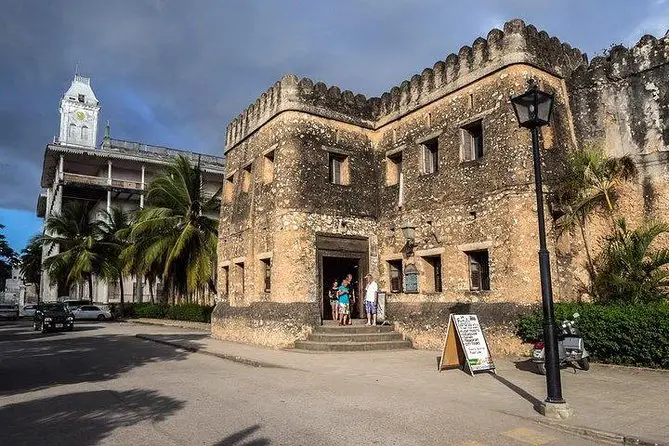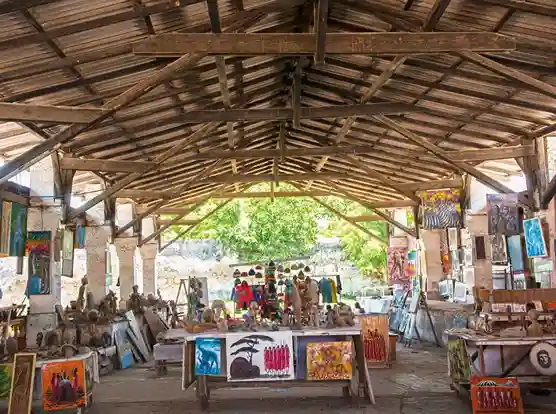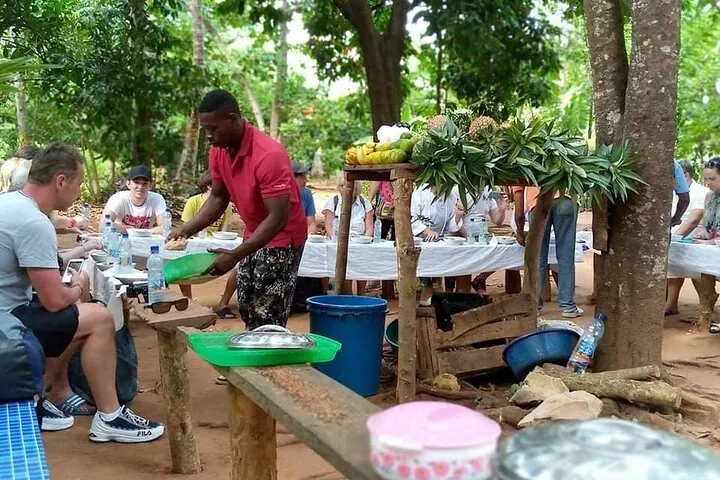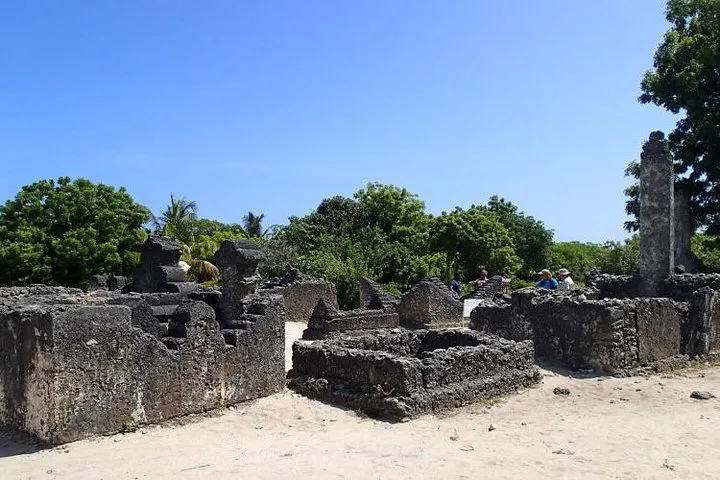Zanzibar Culture & Heritage: History, Festivals & Traditions
Zanzibar is more than just turquoise beaches it’s a melting pot of African, Arab, Indian, and European influences that have shaped its unique identity over centuries. From the winding alleys of Stone Town to vibrant music and dance festivals, every corner of the island tells a story of cultural fusion. Visitors can explore traditional crafts, taste Swahili cuisine, and experience age-old customs that remain alive today. Below is a closer look at Zanzibar’s rich culture and heritage, highlighting the history, festivals, and traditions you can discover with Capable Africa Tours.
Discover Zanzibar Now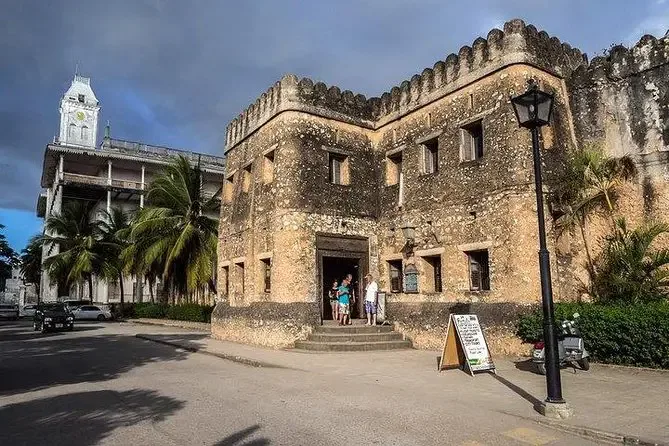
Your Ultimate Guide to Zanzibar’s Culture & Heritage
Zanzibar, a Tanzanian archipelago in the Indian Ocean, is a cultural melting pot shaped by centuries of trade and migration. Known as the “Spice Islands,” its history spans over 20,000 years, with influences from Bantu, Arab, Persian, Indian, and European settlers. Stone Town, a UNESCO World Heritage Site, reflects this diversity in its architecture, while festivals like Sauti za Busara and Mwaka Kogwa celebrate its vibrant traditions. With Capable Africa Tours, explore Zanzibar’s heritage through guided tours, spice farm visits, and cultural festivals. This guide covers history, traditions, cuisine, and more to help you plan an unforgettable journey.
A Brief History of Zanzibar’s Cultural Heritage
Zanzibar’s culture is a fusion of African, Arab, Indian, and European influences, shaped by its strategic position on Indian Ocean trade routes. From the 8th century, Bantu-speaking peoples mingled with Persian and Arab traders, introducing Islam and creating the Swahili culture. By the 15th century, Zanzibar was a thriving trade hub for spices, ivory, and slaves. The Portuguese ruled from 1503 to 1698, followed by the Omani Sultanate, which made Zanzibar a global spice capital. The British protectorate (1890–1963) and the 1964 revolution, merging Zanzibar with Tanganyika to form Tanzania, further shaped its identity. Today, Zanzibar’s semi-autonomous status preserves its unique heritage, celebrated through its architecture, music, and festivals.
Key Historical Milestones
- 8th–10th Century: Persian and Arab traders settle, introducing Islam and Swahili culture.
- 1503–1698: Portuguese control Zanzibar, marking the start of European influence.
- 1698–1890: Omani Sultanate transforms Zanzibar into a spice and slave trade hub.
- 1890–1963: British protectorate oversees Zanzibar, abolishing the slave trade.
- 1964: Zanzibar Revolution leads to union with Tanganyika, forming Tanzania.
Zanzibar’s Cultural Highlights
Zanzibar’s cultural richness shines through its traditions, music, cuisine, and festivals. The Swahili culture, a blend of Bantu and Arab influences, is evident in the Kiswahili language, Taarab music, and intricate architecture. Stone Town’s labyrinthine streets house historic landmarks like the Old Fort and House of Wonders. Festivals such as the Zanzibar International Film Festival (ZIFF) and Mwaka Kogwa showcase the island’s diversity, while spice farm tours and cooking classes offer hands-on cultural experiences. Below are key cultural highlights to explore with Capable Africa Tours.
Swahili Culture & Traditions
The Swahili people, formed through centuries of intermarriage between Africans and traders, are central to Zanzibar’s identity. Their language, Kiswahili, is a Bantu tongue infused with Arabic, spoken across East Africa. Traditional practices include henna art for celebrations, conservative dress (especially for women, covering head to toe), and communal Ngoma dance. Taarab music, blending Swahili poetry with Arab and African melodies, is a cultural staple, often performed at weddings and events.
Zanzibar’s Cuisine
Zanzibar’s cuisine reflects its multicultural heritage, combining African, Arab, Indian, and Portuguese flavors with local spices like cloves, cinnamon, and nutmeg. Must-try dishes include:
- Zanzibar Pizza: A stuffed flatbread with savory or sweet fillings, sold at street markets.
- Urojo Soup: A tangy, coconut-based soup with fritters and spiced potatoes.
- Biryani and Pilau: Spiced rice dishes with seafood or meat, showcasing Indian influences.
- Octopus Curry: A rich, spicy dish highlighting Zanzibar’s coastal bounty.
Join a Swahili cooking class with Capable Africa Tours to learn these recipes hands-on. Visit Forodhani Night Market for fresh seafood and local delicacies.
Zanzibar Festivals & Events
Zanzibar’s cultural calendar is vibrant and full of life, offering visitors the chance to experience the island’s traditions, music, art, and community spirit. From world-class film and music festivals to colorful religious and cultural celebrations, each event reflects the island’s unique blend of Swahili, Arab, Indian, and African influences. Attending one of these festivals adds depth and authenticity to your journey, letting you connect with the heartbeat of Zanzibar beyond its beaches. Below is a list of the top festivals and events to experience during your visit with Capable Africa Tours.
- Sauti za Busara Music Festival – A vibrant 4-day festival every February in Stone Town, featuring live performances by African artists across genres like taarab, afrobeat, and traditional Swahili music.
- Zanzibar International Film Festival (ZIFF) – Held annually in July, it’s East Africa’s biggest cultural event, showcasing African cinema, documentaries, and performing arts.
- Mwaka Kogwa Festival – A traditional Shirazi (Persian-influenced) New Year celebration in Makunduchi village every July, with rituals, symbolic mock fights, and lots of music and dance.
- Eid al-Fitr & Eid al-Adha – Important Islamic holidays widely celebrated in Zanzibar, marked by prayers, feasting, and festive gatherings throughout the island.
- Zanzibar Beach & Water Sports Festival – A lively beachside event with kite surfing, dhow races, live music, and cultural displays, usually held in Nungwi or Paje.
- Zanzibar Cultural Festival – Celebrated in July/August, it highlights Swahili culture with food, traditional dance, music, and crafts.
- Zanzibar Yoga Festival – A wellness-focused gathering in Paje, bringing together yoga practitioners from around the world for classes, workshops, and holistic activities.
Top Heritage Sites to Visit in Zanzibar
Zanzibar is not only known for its stunning beaches but also for its rich history and cultural heritage that dates back centuries. From ancient stone towns and spice plantations to historic palaces and sacred sites, the island offers travelers a unique glimpse into the blend of African, Arab, Indian, and European influences. Exploring these landmarks with a local guide brings the stories of Zanzibar to life in an authentic and memorable way. Below is a curated list of the top heritage sites to visit during your Zanzibar journey with Capable Africa Tours.
- Stone Town (UNESCO World Heritage Site) – The heart of Zanzibar City, famous for its winding alleys, coral stone houses, and rich Swahili culture.
- House of Wonders (Beit-el-Ajaib) – Once a sultan’s palace, later a museum, it’s the largest and tallest building in Stone Town.
- Old Fort (Ngome Kongwe) – Built in the 17th century by the Omanis, now used for cultural events and markets.
- Palace Museum (Beit al-Sahel) – Former home of the Sultan, now showcasing royal artifacts and history.
- Darajani Market – A lively traditional market, reflecting Zanzibar’s trading history and daily life.
- Forodhani Gardens – A seafront park in Stone Town, known for its night food market and historic surroundings.
- The Old Dispensary (Aga Khan Building) – A beautiful 19th-century building with carved balconies and stained glass.
- Slave Market & Anglican Cathedral – A historic site telling the story of Zanzibar’s role in the slave trade.
- Spice Plantations – Not just farms, but part of Zanzibar’s centuries-old spice trade heritage.
- Maruhubi Palace Ruins – Remains of Sultan Barghash’s 19th-century palace, once home to his harem.
Practical Tips for Experiencing Zanzibar’s Culture
To fully immerse yourself in Zanzibar’s culture, respect local customs and plan strategically. With 99% of the population being Muslim, dress modestly (covering shoulders and knees), especially in Stone Town and rural areas. Engage with locals through guided tours, cooking classes, or village visits to learn about their traditions. Below are essential tips to ensure a respectful and enriching cultural experience with Capable Africa Tours.
- Dress Respectfully: Wear long skirts or pants and sleeved tops; women may need headscarves in religious sites.
- Learn Basic Swahili: Greetings like “Jambo” (hello) and “Asante” (thank you) foster goodwill.
- Join Guided Tours: Local guides provide insights into history, architecture, and traditions.
- Respect Photography Rules: Ask permission before photographing locals or religious sites.
- Time Your Visit: June–October offers dry weather, ideal for festivals and outdoor exploration.
- Support Local Artisans: Buy handmade crafts at Darajani Market to support the community.
Experience Zanzibar’s Culture with Capable Africa Tours
Immerse yourself in Zanzibar’s vibrant heritage with Capable Africa Tours. Our expert-guided tours, cultural experiences, and sustainable practices ensure a meaningful journey through Stone Town, spice farms, and festivals.
- Expert Local Guides for Cultural Insights
- Customizable Itineraries for All Interests
- 90% Customer Satisfaction Rate
- Sustainable Tourism Supporting Local Communities
- Combine with Safari or Beach Holidays

